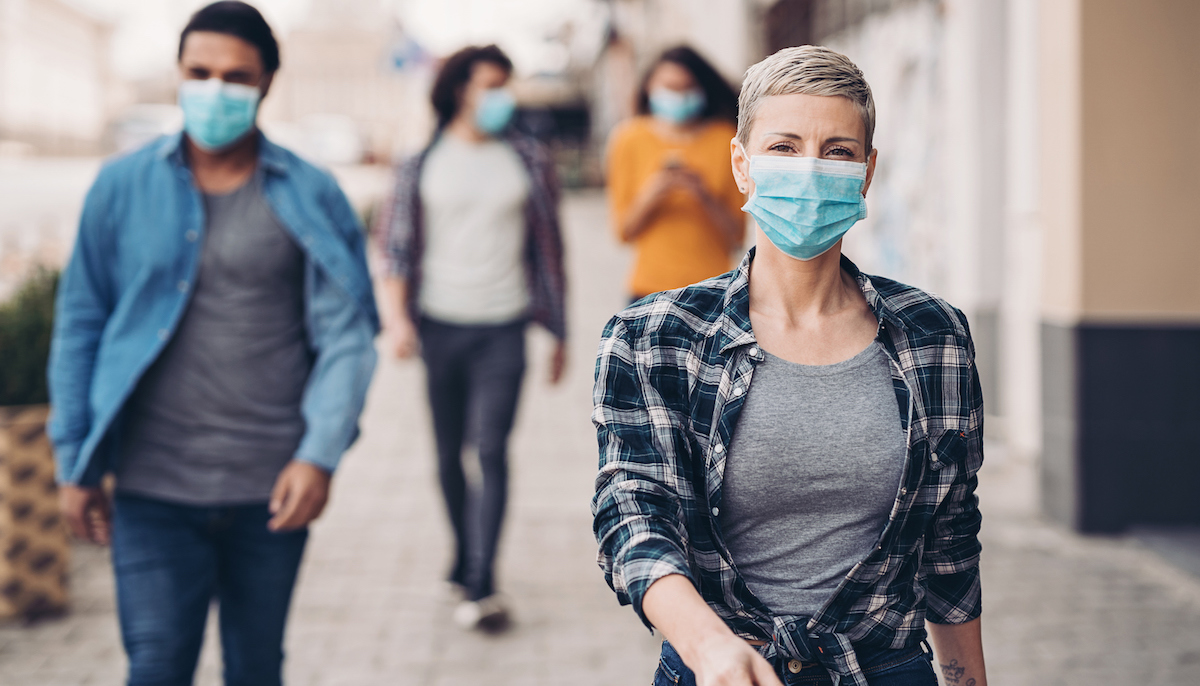<< Back
Sex Hormones And COVID-19: Does it Explain Men’s Risk of More Severe Illness?

May 27, 2021
For months, scientists have speculated that women are less vulnerable than men to severe COVID-19 illness and death because of sex hormone differences. High levels of testosterone in men, some research suggested, could explain reports that 73 percent of COVID-related deaths in China and 70 percent in Italy were men.
But new evidence in a Washington University (St. Louis) School of Medicine study points to lower levels of testosterone in male COVID patients as predictor of severe illness. The study, which tracked 90 male and 62 female patients during their illness, found that men hospitalized with severe COVID had extremely low testosterone, 52 nanograms per deciliter.
What, exactly, is low testosterone?
“Medically speaking,” says Dr. Helen Anaedo, a Hartford HealthCare Tallwood Men’s Health board-certified endocrinologist, “it’s when testosterone levels drop below 250 nanograms per deciliter. As measured by a blood test called serum testosterone, the normal range is 250 to 1100 nanograms per deciliter.”
In the study, published in JAMA Network Open, men with less severe illness averaged 151 nanograms per deciliter of testosterone. Among the more severe cases, blood testosterone averaged only 19 nanograms per deciliter by the third day in the hospital.
Previous studies that reviewed cases of recovered patients presumed low testosterone left men more vulnerable to severe illness. Some scientists, writing in the journal Critical Care, suggested testosterone screening for men to identify high-risk COVID patients.
The new study does not conclude that low testosterone leads to more severe illness or if COVID-19 definitively drops testosterone levels. But lower testosterone levels, the researchers say, can predict which patients will become extremely ill in a short time. In the United States, men account for 54.2 percent of COVID-related deaths but 47.8 percent of all COVID cases, according to the Centers for Disease Control and Prevention.
As we emerge from COVID, here are are five signs of low testosterone, or low-T, according to Dr. Anaedo:
- Erectile dysfunction: Testosterone, the all-purpose fuel for the male sex machine, stimulates sex drive and also helps produce nitric oxide — a molecule that initiates several reactions that eventually produce an erection. Low testosterone can cause difficulty in achieving or maintaining an erection. Important: Low testosterone is only one possible cause of erectile dysfunction. Talk to your doctor if you’re experiencing any difficulties.
- Increased body fat: Notably, some men developed enlarged breast tissue (gynecomastia), perhaps because of a disruption of the testosterone-estrogen balance in the body.
- Mood changes: Here’s the mental side of testosterone. Men with low-T can also experience depression and irritability.
- Hair loss: Balding is part of aging, typically inherited. Men with low testosterone, however, can also lose body and facial hair.
- Difficulty sleeping: Falling asleep or staying asleep. Many men with low testosterone also have sleep apnea.
Men can increase testosterone levels, says Dr. Anaedo, without medications. (For women, normal testosterone levels range from 15 to 70 nanograms per deciliter.)
Here are five ways to boost levels naturally:
- A healthy lifestyle: Combine exercise, particularly lifting weights and high-intensity interval training, with a nutritional diet. Get a good mix of protein, fat and carbohydrates. Ginger, leafy green vegetables, extra-virgin olive oil, fatty fish and fish and oysters each have properties that can help elevate testosterone levels.
- Avoid stress and its accompanying high levels of cortisol, a hormone that can reduce testosterone.
- Vitamin D: Get it as a vitamin supplement or regular exposure to the sun.
- Get plenty of quality sleep. In one study, sleeping five hours a night was linked to a 15 percent drop in testosterone levels.
- Try some testosterone-boosting herbs. Ashwagandha (Sanskrit translation: “smell of the horse”) has been a favorite more than 3,000 years as a stress-reliever and energy-booster. In one study, it not only increased testosterone levels significantly, but also increased sperm count and movement (motility).